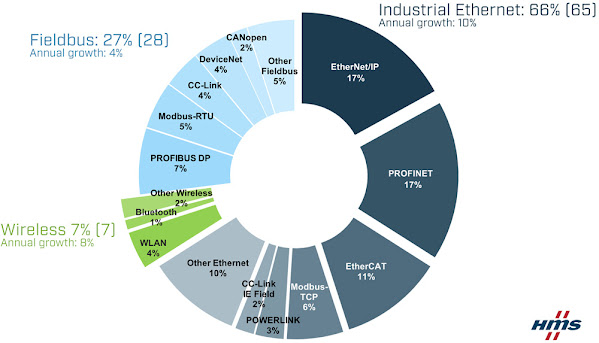Industrial networks keep growing despite challenging times

Market shares 2022 according to HMS Networks – Fieldbus, industrial Ethernet and wireless. Every year, HMS Networks analyses the industrial network market to estimate the distribution of new connected nodes in factory automation. This year’s study shows that the industrial network market is expected to grow by 8% in 2022. Industrial Ethernet still shows the highest growth and now accounts for 66% of all new installed nodes (65% last year). Fieldbuses are at 27% (28) while wireless remains at a 7% market share. PROFINET and EtherNet/IP share first place in the network rankings with 17% market share, but EtherCAT closes in fast, now at 11%. HMS Networks now presents their annual analysis of the industrial network market, focusing on new installed nodes within factory automation globally. As an independent supplier of solutions within Industrial ICT (Information and Communication Technology), HMS has a substantial insight into the industrial network market. The 2022 study includes estimat
.jpg)